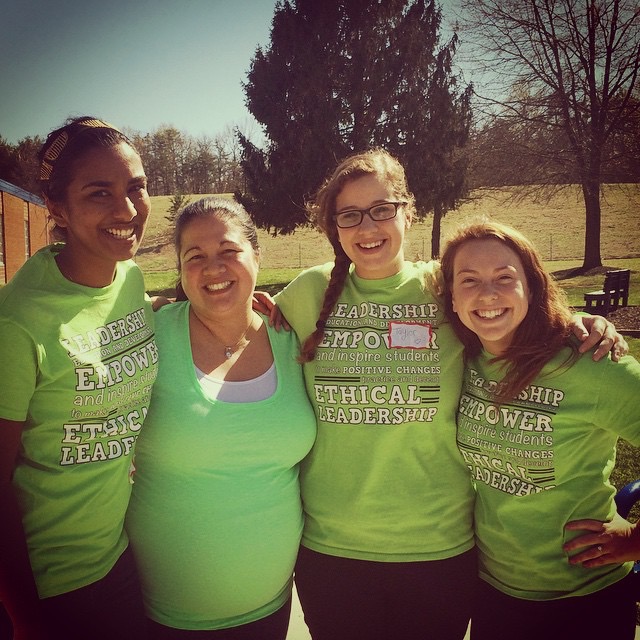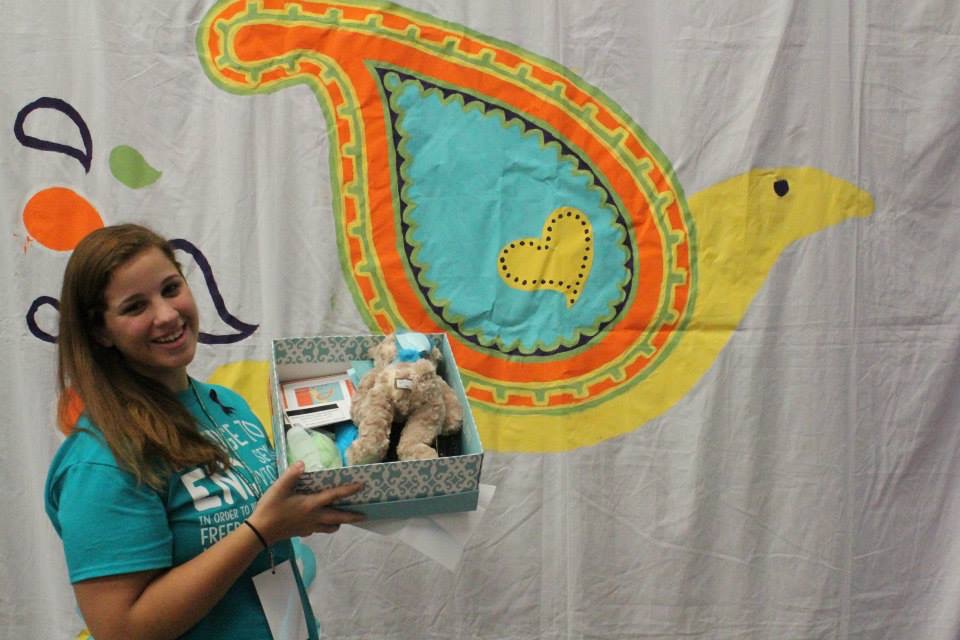“We can not solve our problems
with the same level of thinking
that created them”-Albert Einstein
In order to make decisions and solve problems, I seek to make sure I have all of the information I need before acting. This has come with a lot of learning experiences and growth over the past few years, but I have found that patience can be one of the most important parts of decision making, as it is best to take the time to understand all aspects of a problem before coming to a conclusion.

Sreehima, Lisa, Caitlin, and I at the Second Annual InCredAble Leadership Conference at Godwin Middle School in April 2015.
I have found that one of the most important parts of solving any problem is asking questions and making sure that every avenue for solution is open. Upon learning about a problem, I often go to a trusted supervisor or co-worker and try to gather information and advice from them before moving on. I recognize that a problem can be solved in multiple ways, and looking at all of the realistic options is important before making a plan of action. I also think that the opinions and voices of others are the most important ways of solving any problem. Everyone thinks about things in different ways, and being willing to hear everyone’s ideas and try to consolidate them can lead to the best solutions.
While being patient and taking time is important, problems can also arise that require one to be quick on their toes. Something breaks, someone can’t make it, not a lot of people show up to the event, etc. One of my greatest strengths is adaptability, and it has been an asset to my ability to solve problems in a moment’s notice. For example, during this year’s Godwin Middle School InCredAble conference, there were many different situations that arose requiring quick problem-solving.
While planning for the conference, we did not have a clear idea of how many students would be attending. We did not receive a list of the students ahead of time and so we had to revamp our check-in procedures to ensure that our small groups were well-balanced and that we knew which students were at the event. Our numbers were somewhat smaller than we intended (but still close to the numbers we’ve had in the past) which required us to adjust the way some of the activities ran. We also had to be able to adjust to the timing of the day and stall during parts of the day (such as when pizza did not come during lunch) or jump into activities that were supposed to happen later in the day. This required us to rely on the strengths of our volunteers and develop new and unique ways to engage students when we were waiting for the next step.
During check in, we also realized that had about 4 students who only spoke spanish. We had not accounted for this in planning the conference, but we thankfully had about 4 facilitators who could speak spanish and translate the lessons and instructions for them, and now know to plan for this in future conferences. Responding to problems in the moment does not stop when the fire is put out, we must be able to learn from these moments and plan for long-term solutions in the future.
One of my greatest challenges in this area is that I can be quite indecisive. While I am willing to get all of the information to inform my decision, that sometimes hinders my ability to break down the situation and make a quick and expedited choice. This has been something that I have developed throughout my personal and professional life as I try to navigate the various situations that lead up to my future. In the past, I have tried to adopt a mindset that questions what does the most good for the most people that will be affected by the decision. More recently, I have begun to add myself into that situation and think of what is best for me. It can be easy to forget one’s self when making decisions, and I have started to make myself a priority.
Problem solving requires adaptability and information-seeking skills, which, I believe, are some of my greatest abilities. I do my best to understand the whole situation before making a decision and gather as much information and opinion as I can.

